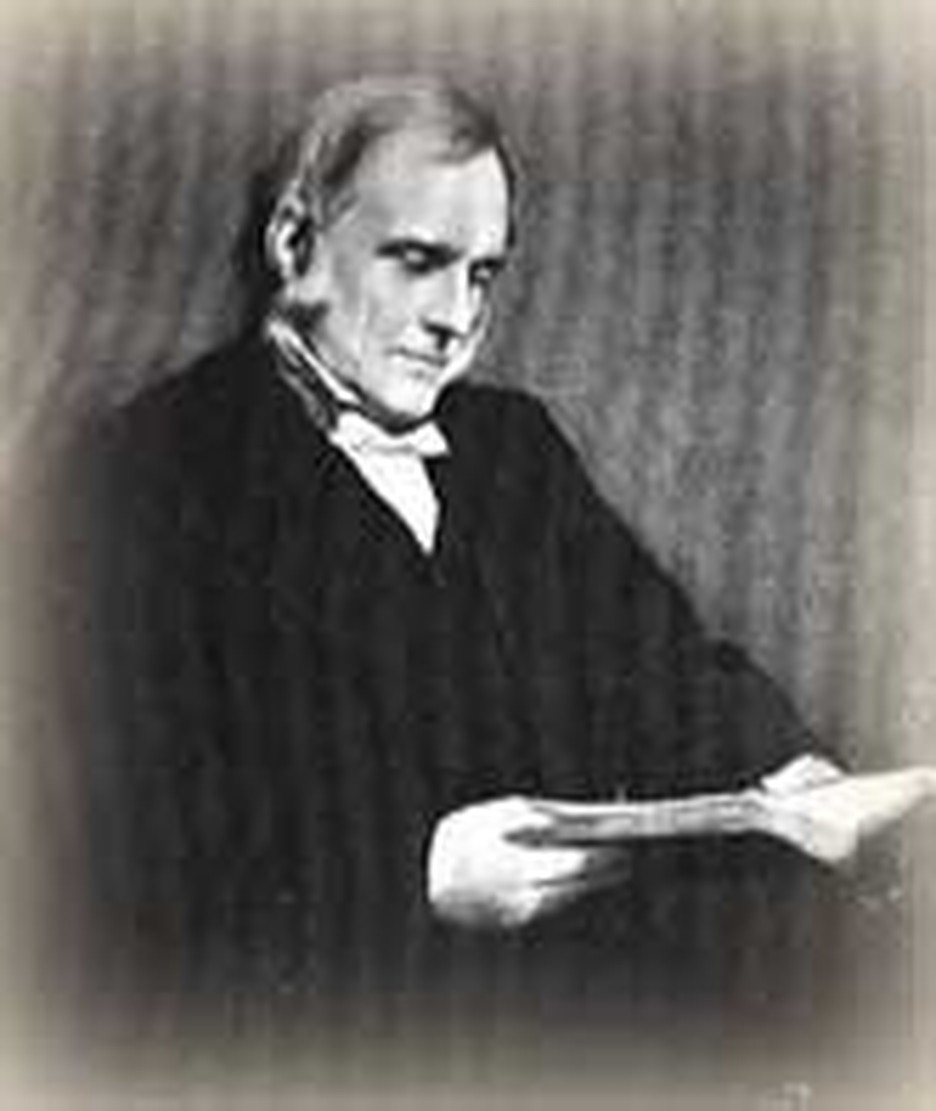
In every age certain people emerge whose voice, character, personality and ideals captivate those around them. On this day, April 1, 1872, such a one took his last breath. Frederick Denison Maurice was the "most beautiful human soul" that Christian novelist Charles Kingsley had known. "O, he was the prophet, he was the prophet!" exclaimed Thomas Hughes, another Christian novelist. A third acquaintance spoke of Maurice as the most Christ-like individual he had met.
Maurice died of overwork. He had written books and pamphlets, edited newspapers, preached, attended the sick, and taught in both traditional and workingmen's schools all his life, despite physical weakness--rising early each day and not slacking pace until after evening dinner. Even as a boy he spent little time on amusement. The Bible, histories, and adult meetings occupied his childhood leisure.
Unfortunately the atmosphere of his childhood home was strained. His father was an avowed Unitarian, a man of such determined principal that he once rejected an estate rather than change his deviant doctrinal views. For a long time, his mother, too was Unitarian, but the death of a sister caused her to reevaluate her thinking with the result she joined the Church of England. The arguments between parents were painful to Maurice. He himself converted to the Church of England and was baptized in 1831. By 1834 he had taken his orders in the church. But the church's doctrine was never a completely comfortable fit for him. His ideas were broad and inclusive, subject to misinterpretation, and often got him into hot water.
Although shy, he seemed to attract his ablest contemporaries into his circle. Two famous novelists were among them and so was the greatest physicist before Einstein. At Cambridge Maurice formed a club known as the Apostles. James Clerk Maxwell became a member and lectured freely at Maurice's Workingman's College.
Maurice contended that society could only be transformed through the incarnation of Christ. Christians must become "socialists," that is, socially active, and socialists must become Christians. He was a founder and the chief voice of the Christian Socialists. He edited their newspaper, The Athenaeum.
He also wrote many letters. In one to a Miss Hare he reflected on the meaning of Christ's passion: "I do not think we differ at all about Passion Week. It is the violent effort at realization, as it is called, which I think disappointing and mischievous; just the remedy for the temptation to make it is the quiet simple recognition of Christ as entering into our sufferings and the sufferings of all we know. That is real. It is not trying to wind ourselves to some conception of what He may have passed through, but apprehending by that which we have experienced what He must have passed through."
In an effort to put his ideas into practice, he created institutions for workers, such as the Workingman's College. Education, he believed, could do much to rectify society. A trained lawyer, he helped secure passage of a bill through Parliament which gave legal status to cooperatives. This was a big boost to workers who sought to unite. His efforts weakened his health. He found it necessary to resign many positions and consequently became depressed. His last act, as he slipped into unconsciousness, was to pronounce a blessing which he had difficulty enunciating.
Bibliography:
- Brookfield, Frances M. T. The Cambridge Apostles. New York: Scribner's, 1907.
- Dowley, Tim. Eerdman’s Handbook to the History of Christianity. Carmel, New York: Guideposts, 1977.
- Graves, Daniel. The Boy Who Wondered about Light: James Clerk Maxwell (manuscript).
- Maurice, Frederick Denison. Toward the Recovery of Unity; the thought of Frederick Denison Maurice. Edited from his letters, with an introduction by John F. Porter and William J. Wolf. New York: Seabury Press, 1964.
- "Maurice, Frederick Denison." Dictionary of National Biography. Edited by Leslie Stephen and Sidney Lee. London: Oxford University Press, 1921 - 1996.
- "Maurice, Frederick Denison." The Oxford Dictionary of the Christian Church. Edited by F. L. Cross and E. A. Livingstone. Oxford, 1997.
Last updated April, 2007.



.jpg)